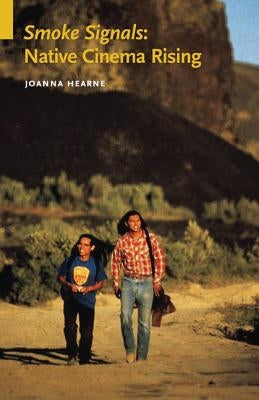1
/
of
1
University of Nebraska Press
Smoke Signals: Native Cinema Rising
Smoke Signals: Native Cinema Rising
Regular price
$34.00 USD
Regular price
Sale price
$34.00 USD
Shipping calculated at checkout.
Quantity
Couldn't load pickup availability
Smoke Signals is a historical milestone in Native American filmmaking. Released in 1998 and based on a short-story collection by Sherman Alexie, it was the first wide-release feature film written, directed, coproduced, and acted by Native Americans. The most popular Native American film of all time, Smoke Signals is also an innovative work of cinematic storytelling that demands sustained critical attention in its own right. Embedded in Smoke Signals's universal story of familial loss and renewal are uniquely Indigenous perspectives about political sovereignty, Hollywood's long history of misrepresentation, and the rise of Indigenous cinema across the twentieth and twenty-first centuries. Joanna Hearne's work foregrounds the voices of the filmmakers and performers--in interviews with Alexie and director Chris Eyre, among others--to explore the film's audiovisual and narrative strategies for speaking to multiple audiences. In particular, Hearne examines the filmmakers' appropriation of mainstream American popular culture forms to tell a Native story. Focusing in turn on the production and reception of the film and issues of performance, authenticity, social justice, and environmental history within the film's text and context, this in-depth introduction and analysis expands our understanding and deepens our enjoyment of a Native cinema landmark.
Author: Joanna Hearne
Publisher: University of Nebraska Press
Published: 12/01/2012
Pages: 280
Binding Type: Paperback
Weight: 0.79lbs
Size: 8.40h x 5.40w x 0.90d
ISBN: 9780803219274
Review Citation(s):
Chronicle of Higher Education 11/16/2012 pg. 16
About the Author
Joanna Hearne is an associate professor of English and film studies at the University of Missouri-Columbia and is the author of Native Recognition: Indigenous Cinema and the Western. Her articles have appeared in Screen, Western Folklore, Journal of Popular Film and Television, and edited volumes.
Share


